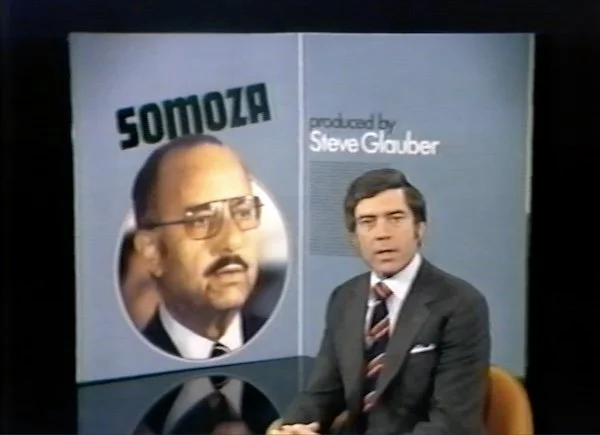Undue Process
Nicaragua’s Daniel Ortega has imprisoned hundreds of dissidents. We spoke with one of them.
Read
Félix Maradiaga spent more than 600 days in a jail in Nicaragua. Held in solitary confinement for most of that time, he faced beatings and constant interrogation. Why? Because he stood up against the dictatorship of Daniel Ortega. Since 2007, Ortega has dismantled checks on his power. In 2018, his police cracked down on mass protests, killing some 300 demonstrators and bystanders. Today, Maradiaga lives in exile and campaigns against the use of arbitrary detention in his native country and around the world.
Maradiaga speaks on this episode with UVa English professor Stephen J. Parks for our occasional series “The Power of Many.” He tells Steve how he was arrested and imprisoned after announcing his intentions to run for president as an opposition candidate against Daniel Ortega. Maradiaga endured solitary confinement, inhumane treatment and more than 400 interrogations over the course of 611 days, before the authorities released him in early 2023.
Meet
Félix Maradiaga is a political activist, human rights advocate and founding director of the Civil Society Leadership Institute, a training center for pro-democracy movements in Central America. He is also a Freedom House trustee. From 2002 to 2006, he was Nicaragua’s secretary general of defense under then–President Enrique Bolaños. He ran for president in 2021 before being detained on trumped-up treason charges. Earlier, Maradiaga directed his country’s Office for the Reintegration of Ex-Combatants. Upon his release from prison, Maradiaga was deported and now lives in the United States. Follow him @maradiaga.
Recently, Maradiaga helped found a new global initiative to end arbitrary detention. Its first task, he says, will be drafting an international treaty against the practice.
As the president of Fundación para la Libertad, Maradiaga advocates for “a free, open, responsible and prosperous society in Nicaragua and Central America.” On the foundation’s site, he blogs about the region, including commentary last year on the imprisonment of Lázara Karenia González Fernández in Cuba.
Maradiaga has spoken extensively about his experience as a political prisoner in Nicaragua’s notorious prison El Chipote: both at the Oslo Freedom Forum and on NPR, highlighting the difficulties that his family went through.
In an interview with El Faro last year, he suggested that not voting and running for office in an authoritarian regime can be equally powerful forms of dissent, depending on the circumstances.
In 2022, Forbes named Maradiaga one of the world’s most influential civic leaders.
You can download the text of a lecture he gave in London in 2018, titled “The Making of a Dictator,” about how Noriega refashioned himself as a conservative after setting aside his Marxist origins. Maradiaga has also likened Ortega’s rule to that of Kim Jong Un.
Learn
The BBC offers a helpful timeline of Nicaraguan history, summarizing the country’s complex path from Spanish colony through the Somoza and Sandinista eras. The Somoza family dynasty dominated the country with American backing following a 24-year U.S. occupation.
The Somoza family’s control of Nicaragua, defined by state terror, prompted a popular uprising in the 1970s. It culminated in the leftist Sandinista National Liberation Front coming to power in 1979, despite U.S. efforts to short-circuit that revolution by supporting the infamous right-wing Contras.
Ortega was a leader in the Sandinista insurrection and the government that followed, then won election to the presidency again in 2006. He’s been in power ever since. Between those moments, Nicaragua experienced a period of relative stability and liberal democracy — from 1990 to 2006 — following the Sandinistas’ defeat at the polls.
Much as before, Ortega’s government over the past decade has taken a hard line against any active opposition to its power, imprisoning political leaders, forcing dissidents to leave the country and confiscating their homes.
Led by university students, Nicaraguans took to the streets in massive protests against Ortega and his eccentric wife and vice president, Rosario Murillo.
Arbitrary detention widely documented across the globe, in Belarus, Burma, China, Cuba, Egypt, Iran, Mexico, Russia, Saudi Arabia, Uganda, Ukraine, Venezuela, Yemen and many other nations.
The United Nations Working Group on Arbitrary Detention defines the practice as imprisonment that violates the spirit of due process even if it relies on the trappings of law to detain opposition figures.
Autocratic governments may be most readily associated with arbitrary detention, but American Indian reservations in the United States can be understood as large-scale arbitrary removal and detention — not to overlook Japanese American incarceration during World War II, which we’ll cover next time on the show.
The British invented the term “concentration camps” to describe detention centers for both white and black Africans during the Boer War in South Africa, in the early 20th century.
Following the terrorist attacks of Sept. 11, 2001, thousands of immigrants and American citizens were arbitrarily detained on the notion that their religious beliefs or nations of origin predisposed them to terrorism. Mass incarceration of migrants at the southern border with Mexico, including the detention of unaccompanied minors has long been controversial.
Canada’s 2021 declaration against the use of arbitrary detention as a diplomatic bargaining chip has been signed by more than 70 countries. Recent examples of this practice include China’s exit bans and Russia’s high-profile arrest of Wall Street Journal correspondent Evan Gershkovich on accusations of espionage.
Heard on the show
Old-school listeners will recognize, at the top of the show, the voice of the respected news anchor Dan Rather in some archive tape about the Sandinista revolt of the 1960s and ’70s. We also turned to an interview with Ortega in 2009 with David Frost on Al Jazeera. And you’ll hear clips from a recent report on contemporary Nicaragua, from “60 Minutes.”
We scored the intro to this episode with songs from Chad Crouch (“Ink,” 2019), Podington Bear (“Lucky Stars,” 2017) and NHeap (“5 March,” 2009).
Transcript
Coming soon!








